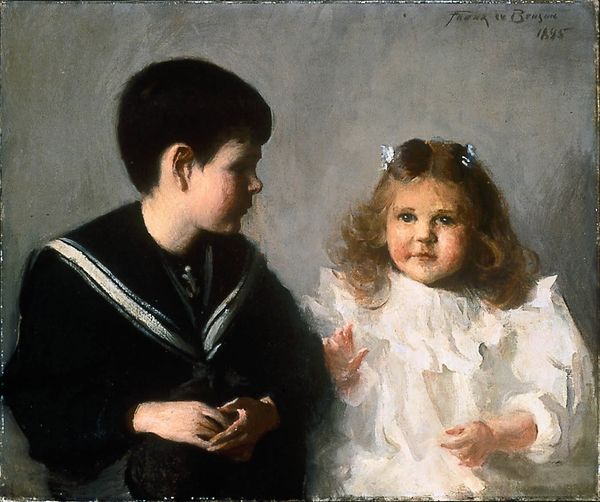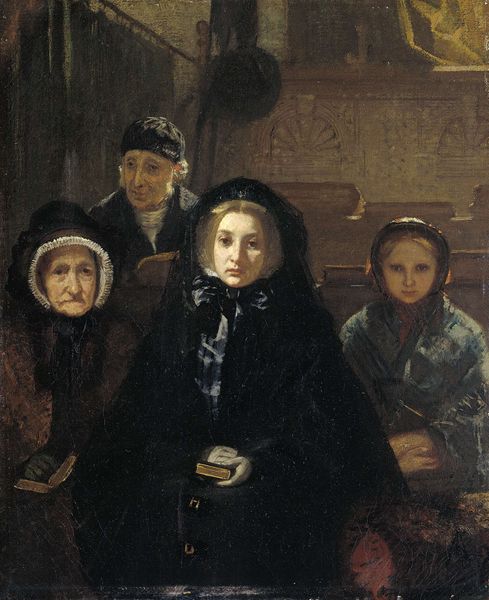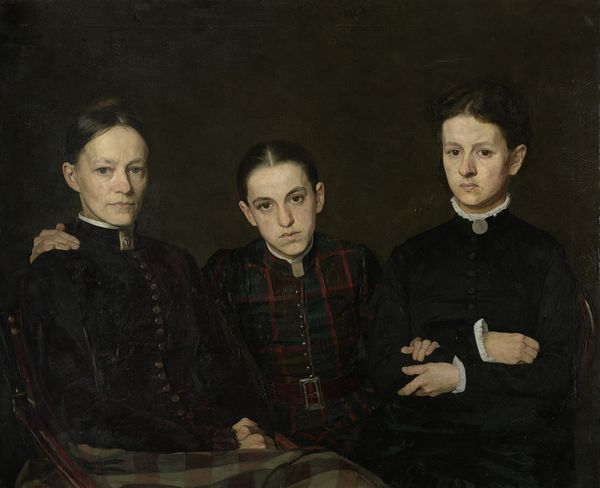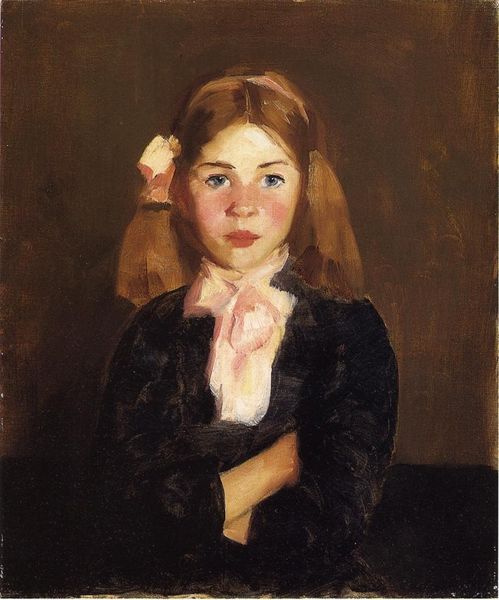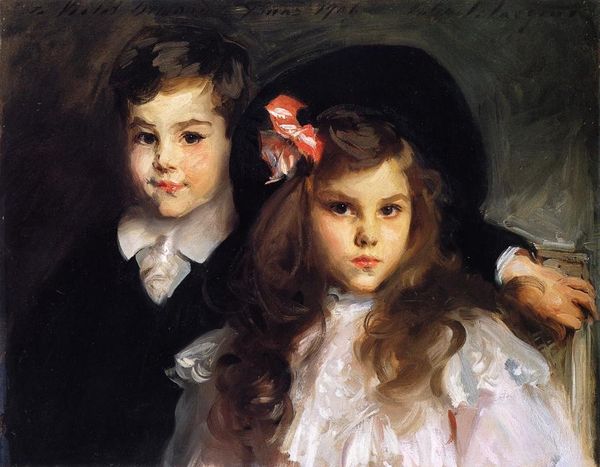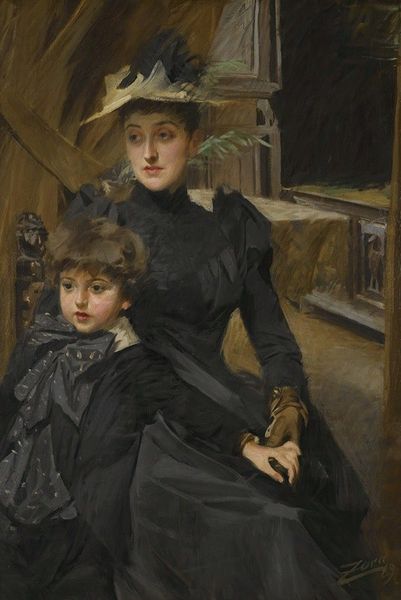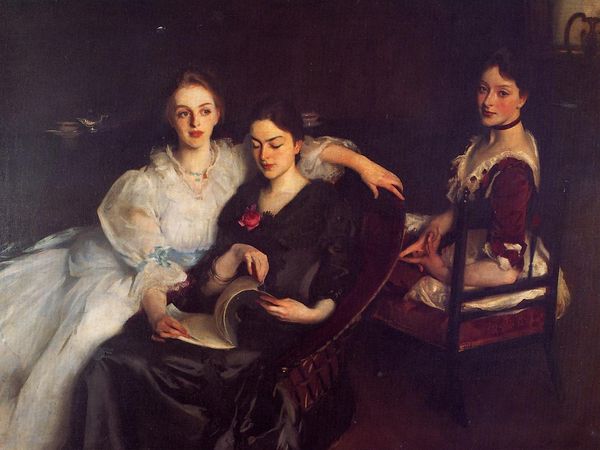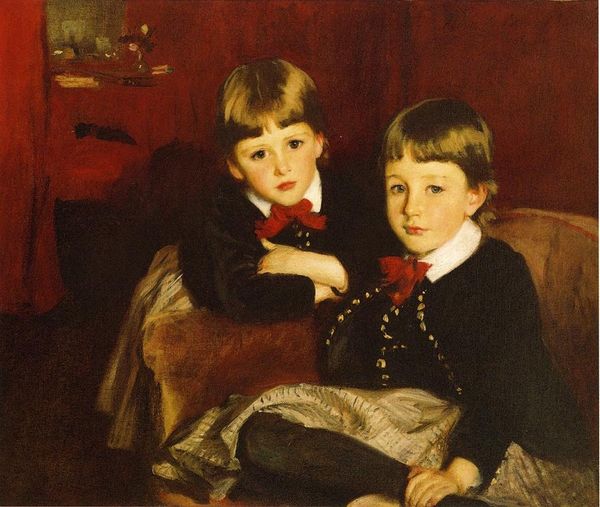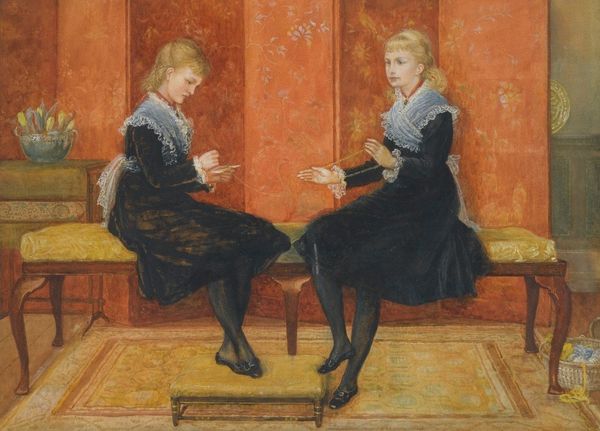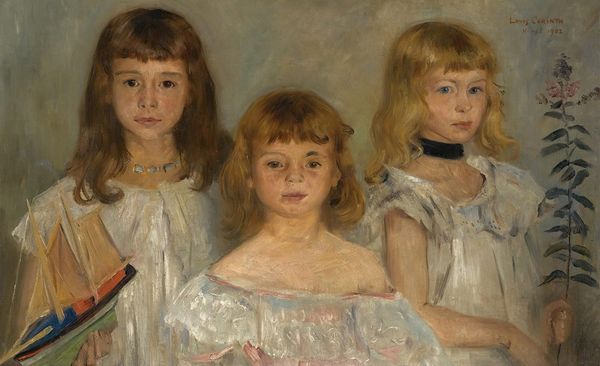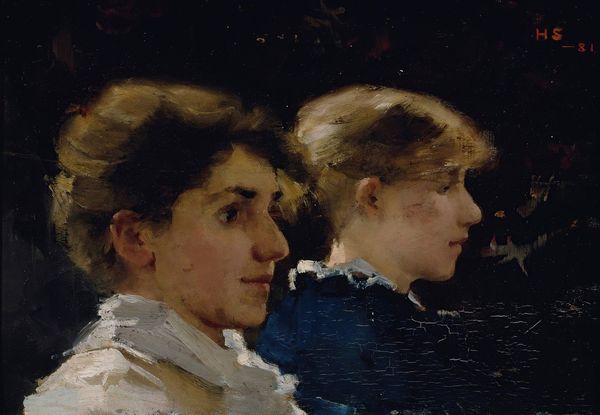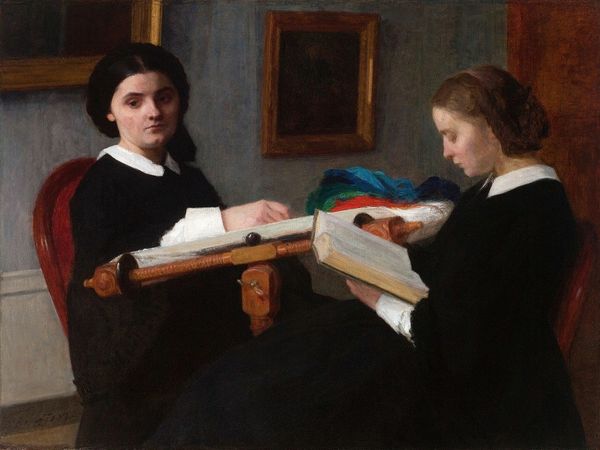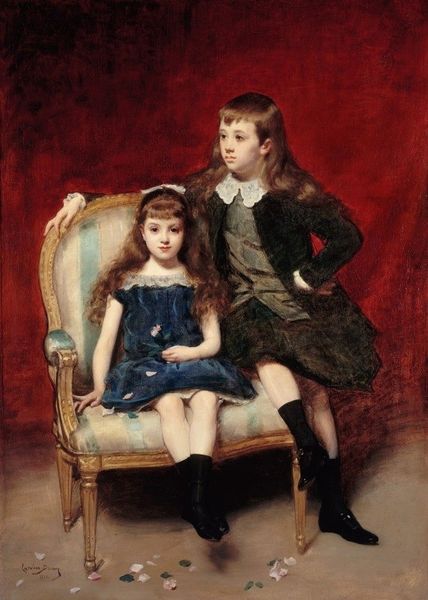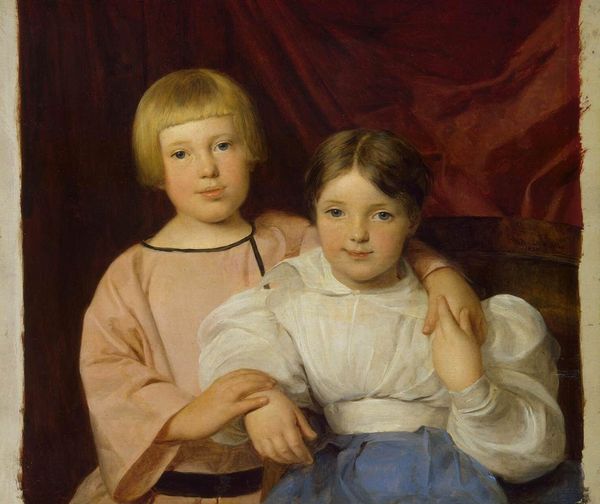
painting, oil-paint
#
portrait
#
painting
#
impressionism
#
oil-paint
#
figuration
#
genre-painting
Copyright: Public domain
Editor: So, this is Degas’s "Giovanna and Giulia Bellelli," painted in 1866. The sisters appear in oil on canvas. There's this underlying feeling of sadness, maybe even a bit of tension between them. How do you interpret this work? Curator: I see it as a very complex statement on 19th-century bourgeois family life. Consider the time: France under the Second Empire, where appearances and social status were paramount. These girls, daughters of Degas’ aunt, are presented in a very particular light. Note their dark dresses and somber expressions. What do those sartorial choices convey to you? Editor: Restraint, maybe? A sense of duty, or even mourning? The black fabrics are imposing, suggesting a kind of performance. Curator: Precisely! Black dye was expensive and challenging to use at the time, which denotes status and formality. Beyond individual personalities, Degas is examining the public role of women within the constraints of their class. Consider how the composition divides the space, visually separating the girls. Do you think that separation is intentional? Editor: Definitely intentional! Giulia is looking off to the side and seemingly not engaged with the scene; it adds to that tension I felt at first glance. Is Degas commenting on their roles within this societal structure, by contrasting a daughter who will adhere to these expectations with one who is resistant to these prescribed behaviors? Curator: Possibly. And by displaying this glimpse into their world, is Degas prompting his viewers to question their own roles and assumptions within society? The painting itself then becomes an act of political, not only artistic, commentary. Editor: I never considered the political implications of a family portrait! Curator: These visual cues all build on each other to tell a more extensive and thoughtful story, don’t they? This makes me rethink the common dismissal of Impressionism as a style focused primarily on light and visual appearances. Editor: Exactly! It provides insight into understanding the artwork, especially once viewed within its socio-cultural context.
Comments
No comments
Be the first to comment and join the conversation on the ultimate creative platform.
